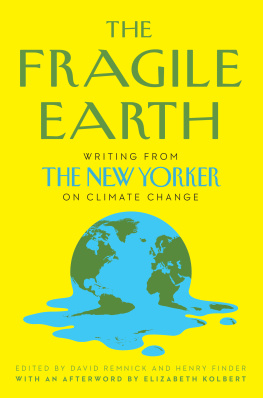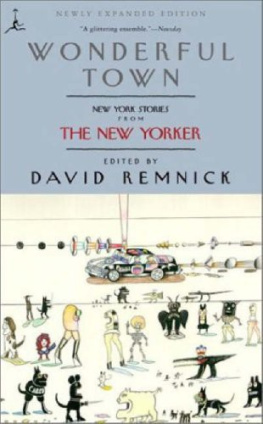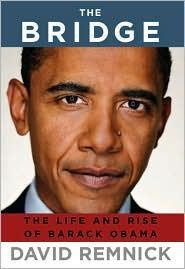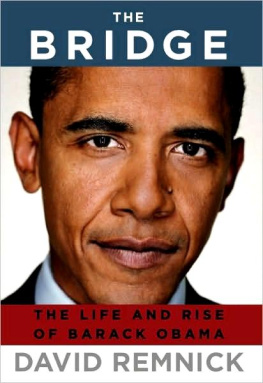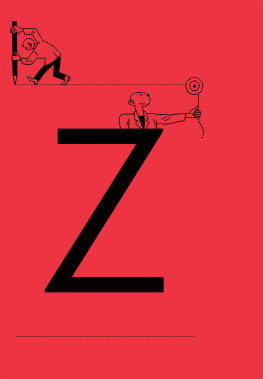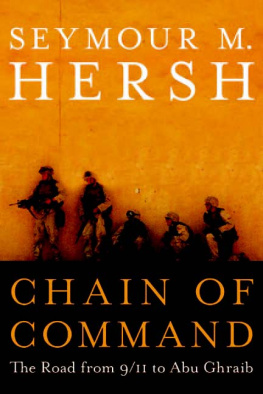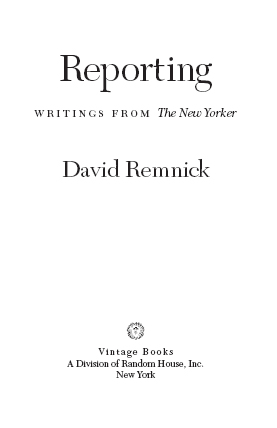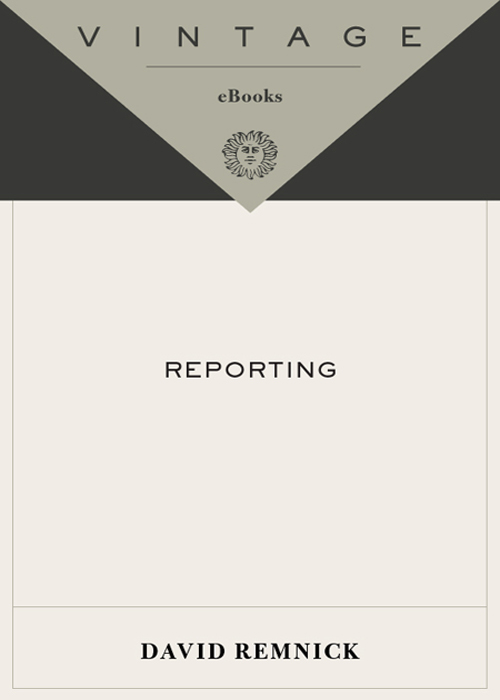
Contents
For Natasha, Noah, Alex, and Esther
Preface
M y first regular reporting job was on the night-police beat in Washington writing anonymous squibs about the catastrophes of others. A typical start, in other words. On my first nightthe shift began at six and ended at two or three in the morningI drove to D.C. police headquarters on Indiana Avenue to check out the press room. With visions of cigar smoke, poker games, snapping typewriters, and some William Powelltype reporters making wised-up remarks about the desk swirling unaccountably in my mind, I found the right door, opened it, and switched on the light. The bare fluorescent tubes overhead flickered, then buzzed into being. There were a couple of gray metal desks shoved into a corner, and, on one of them, a heavyset man still wearing a hat was fast asleep, wheezing a shrill fugue from under his pea-green raincoat. Finally, stirred by the light, he rose to his feet, squinted at me, and then fumbled around for a while in a shopping bag. He retrieved two cans and shoved them in his pockets.
Hello, he said, stepping smartly across the linoleum. Im the night guy for The Washington Times. You must be the latest Post-ie. He reached into his jacket and pulled out a Schlitz. Wanna beer?
And so I began my time in the employ of Katharine Graham, Benjamin C. Bradlee, and the Washington Post Company. On all counts, I was lucky and knew it. I was living in a small apartment in Adams-Morgan and working for a paper that still enjoyed the residual glamour of its Watergate exploits. My friendly rival from the Times was in the employ of the Reverend Sun Myung Moon and lived in his cara vintage Cadillac hearsewhere he spent his leisure hours reading police procedurals. My job, which I did at first with great enthusiasm, was to make a cycle of hourly telephone calls to the various city and county police departments, fire stations, and emergency rooms in the Posts readership area and ask if there were any crimes, fires, or accidents that I should know about. There often were. At the time, Washington was miserably governed, racially divided, and in the midst of the crack epidemic. The city was a perennial contender for the countrys murder capital and some of the surrounding suburbs were also making a fair showing. In the event of mayhem, I was under orders either to stop by the crime scene for the details or, if it was too late, gather them by telephone. Invariably, the night editor, after being informed of the grisly facts, would say, Two graphs. Slug it slay. His inflection was mordant but practiced, self-conscious; even on the city desk post-modernism was well under way. The literary form that embodied his instruction was as precise as a villanelle. Typically: A Northwest man, aged 25, was shot and killed last night on the 1300 block of Florida Avenue. Police sources said they believed narcotics were involved. If there was room to fill out the drama with regional color, the streets were described either as garbage-strewn and drug-infested or quiet and tree-lined.
At the Post, I was the opposite of a specialist. The beats to which nearly everyone aspired were on the National staff: the White House, the State Department, the Pentagon, the Hill. For the most part, I was on the margins. For the Sports department, I covered a fledgling (now deceased) football team called the Federals and, because no one any longer cared, the three-quarters-dead world of boxing. For Style, the main features department, my subjects ranged from the funeral of a Gypsy king (whose floral arrangements were dyed and constructed in the shape of a pack of Marlboros, a Glock, and a guitar) to the disappearance, and likely murder, of Shergar, the Irish racehorse. In this extended apprenticeship, I wrote for nearly every section of the paper except National, and when I eventually volunteered for the papers Moscow bureau, I was sent abroad with the firm understanding that there had not been more volunteers (it is cold in Russia and the food is heavy) and that I was, in a two-person bureau, the number two.
Whatever I may have learned in that time, I cannot pretend to have developed unerring instinctsor even particularly sharp ones. By the summer of 1991, my wife, who was working for The New York Times, and I were packing up our apartment on Kutuzovsky Prospekt. Our term in Moscow was up. To be sure, the political atmosphere that summer was overheated: there were liberation movements on the rise from the Baltic states to Central Asia; the Communist Party was fracturing; there was a cornered-animal sense of endangerment within the KGB; there were even rumors of a coup dtat, the overthrow of Mikhail Gorbachev. One afternoon, as a kind of going-away present, Aleksandr Yakovlev, who had been Gorbachevs most trusted and liberal-minded adviser, gave me an interview and let it be known that he, too, expected a full-blown putsch. It was practically inevitable, he said. And yet there seemed no reason to over-react. Rumors of apocalypse in Moscow were a constantif you took them all seriously youd go out of your mindand so a couple of days after the Post published my story on the Yakovlev interview, we said our goodbyes. We left Moscow. Which was a mistake. Twelve hours later, back in New York, with a television tuned to CNN, my wife and I watched a column of tanks rumbling past our apartment building. The coup had begun. The next morning I took a flight back to Sheremetyevo Airport, and then sheepishly hitched a ride to the barricades, where the anti-coup protesters were already feeling confident enough to be sticking long-stemmed carnations into the barrels of the armys machine guns. The KGB had lost the power to intimidate and the confidence to fireat least for the moment. Two days later, the coup was finished; by Christmas, so was the Soviet Union.
Flying away from the scene of the crime is a journalistic felony that can be forgiven with time only if you remind yourself that even the most observant can see only hints of a large event as it is happening. Take George Orwell, every reporters hero. As a soldier in the Spanish Civil Wara soldier who went to war as both a political idealist and a self-conscious writerOrwell could not always discern the shape of the conflict, the factional politics in Barcelona and Madrid, the movement of troops, the involvement of foreign powers. Certainly not when he was living in a trench. It was dark and miserable there and he was blinkered, ignorant of nearly everything outside of the hole in which he lived. He could record the feel of his war, the cold, the rain, the filth, the lack of fuel, the lice, what it was like to be shot at, and what it was like to look down the barrel of your own rifle at another human being and fire. The political analysis, the considered judgmentsthey could be filled in later.
The pieces collected hereall written for The New Yorker, where I have worked since 1992attempt to see someone up close, if only for a moment in time: Aleksandr Solzhenitsyn as he packed his bags to return to Russia, Vclav Havel as he prepared to end his magical career as President and leave Prague Castle. Some of my favorite Profile writers, including the magazines two great Joes, Liebling and Mitchell, often wrote about people who were distinctly unfamous and were free with their time. The results of that work, the human, emotional material, often ran as deep as the best fiction. My subjects here tend to be more elusive. They are figures in the public arena, people who are in the midst of a crisis, passing out of one, or anticipating one on the horizon. They are, with some exceptions, people obsessed with altering the history of their era or recording it. Their time was usually limited and sometimes grudgingly provided. They had reputations to protect, public and private agendas to consider, sometimes even a machinery of public relations to keep reporters at bay. The hope, as well as the vanity, is that eventually even public figures will let down their guard, they will be themselves, they will cross the line. Generally speaking, they do what they can to make sure that does not happen.
Next page

